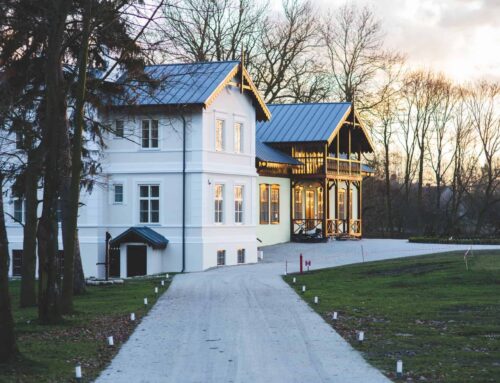 What is a condo HOA and why are they important
What is a condo HOA and why are they important
Homeowner Associations (HOAs) in condominiums play several important roles that contribute significantly to the overall functioning and quality of life within these communities. Here are some key reasons why HOAs are important in a condo setting:
- Maintenance and Upkeep: HOAs are responsible for maintaining common areas such as lobbies, elevators, gyms, pools, gardens, and parking areas. Regular maintenance ensures these areas remain functional and aesthetically pleasing, which is vital for a comfortable living environment and for preserving property values.
- Rule Enforcement: HOAs establish and enforce community rules and regulations. These rules might pertain to noise levels, pet policies, parking, or the use of communal spaces. Enforcing these rules helps prevent disputes between residents and maintains a harmonious living environment.
- Financial Management: HOAs manage the community’s finances, including collecting dues and allocating funds for repairs, improvements, and emergencies. Effective financial management is crucial for the long-term sustainability of the condo complex.
- Conflict Resolution: Inevitably, disputes arise in communal living situations. HOAs often mediate conflicts between residents, ensuring issues are resolved fairly and peacefully.
- Property Value Preservation: By maintaining the property and ensuring a high standard of living, HOAs help preserve and potentially increase the property values of individual units. A well-maintained, well-managed condo is more attractive to potential buyers.
- Insurance and Legal Compliance: HOAs often handle the insurance for common areas and ensure that the condo community complies with local laws and regulations, which can be complex and change frequently.
- Community Building: Many HOAs also focus on fostering a sense of community among residents. They may organize social events, support local initiatives, or provide communal facilities designed to encourage interaction and a sense of belonging.
- Emergency Response: In emergencies like natural disasters, the HOA plays a crucial role in coordinating responses and repairs, helping to minimize damage and restore normalcy as quickly as possible.
When considering a condo with a Homeowner Association (HOA), there are several key factors you should pay attention to to make an informed decision:
- HOA Fees: Understand how much you will need to pay monthly or annually. Assess what these fees cover, such as maintenance, amenities, and insurance, and consider if they are reasonable for the services provided.
- Financial Health of the HOA: Review the HOA’s financial statements and reserve funds. A healthy reserve fund is crucial for covering unexpected repairs or emergencies without imposing special assessments on residents.
- HOA Rules and Regulations (CC&Rs): Carefully read the Covenants, Conditions, and Restrictions (CC&Rs). Pay attention to rules about pets, rental policies, noise, parking, and modifications to your unit. Ensure these rules align with your lifestyle and preferences.
- Meeting Minutes and Community Involvement: Review past meeting minutes if available. They can provide insight into ongoing issues, how the HOA board handles problems, and the overall community involvement.
- Litigation and Legal Issues: Check if the HOA is currently involved in any legal disputes. Ongoing litigation can be a red flag, potentially indicating serious issues within the community or with the HOA’s management.
- Insurance Coverage: Understand what the HOA’s insurance covers and what you need to insure personally. Typically, the HOA’s policy covers common areas, while you’re responsible for your unit’s interior.
- Management: Find out if the HOA is self-managed or whether a professional management company is involved. Professional management can imply more efficient operations but might also mean higher fees.
- Maintenance and Upkeep: Observe the condition of common areas and amenities. Well-maintained facilities usually reflect good management and an active, caring community.
- Resident Satisfaction and Community Culture: Try to get a sense of the community culture and resident satisfaction. Speaking with current residents can provide valuable insights into the living experience and how effectively the HOA operates.
- Special Assessments: Inquire about any past or upcoming special assessments. These are additional charges to homeowners for major repairs or improvements not covered by the regular HOA fees.
- Rental Restrictions: If you plan to rent out your condo or put in on AirBnb, understand any restrictions or guidelines the HOA has regarding rentals.
- Board Meeting Accessibility: Check if you can attend a board meeting before purchasing. This can give you a firsthand view of how the HOA operates and addresses issues.
By carefully evaluating these aspects, you can comprehensively understand the HOA’s operations and determine if the condo community aligns with your needs and expectations. Overall, HOAs in a condo setting are essential for maintaining the community’s quality, safety, and financial health, ensuring that residents can enjoy a harmonious and well-maintained living environment.





